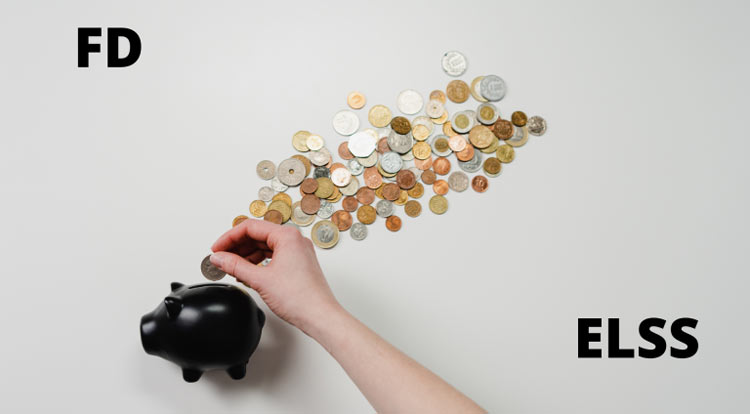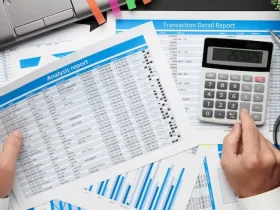Returns from any investment in this country are subject to a tax deduction as they are considered as income. When the returns cross a pre-set limit, tax is deducted as per your tax slab. While you cannot avoid paying taxes, there are certain investment tools that can provide you tax benefits. Among those investments, tools are fixed deposit and ELSS. Both are good options for investment but to find out which one suits you more, a thorough comparison is required.
What is FD?
A fixed deposit allows you to keep your principal fixed and earn interest on the principal amount. The interest rate under an FD remains the same throughout the tenure. At the maturity of the FD, you receive the total corpus including the principal amount and the accumulated interest. There are two kinds of FDs, one being the regular FD and the latter being the tax saver FD.
What is ELSS?
Equity Linked Savings Scheme (ELSS) are investment tools that pool your investment in equity and equity-related assets. You can make investments in ELSS either in a lump sum or at regular intervals.
FD vs. ELSS: which is a better investment choice?
Before you opt for any of the two investment tools, let’s compare these two on the below-mentioned parameters.
Security of investment
FD investments come with assured security. The interest rates of FD do not get influenced by any market turmoil and hence, remain unchanged throughout the tenure. When the FD matures, you get the promised returns.
ELSS investments provide no guarantee of returns. The return rates though comparatively high, totally depend on the performance of the equity market.
Lock-in period
Regular fixed deposits have flexible tenure that can range from 7 days to 10 years. For tax saver fixed deposits, the minimum lock-in period is five years and the maximum is ten years. Investors cannot stay invested for any time longer than that. On the other hand, in ELSS, the minimum lock-in period is three years.
Return on investment
Fixed deposits ensure secured returns on investments. Although the returns are fixed, they are very less when compared to ELSS returns.
ELSS involves investment in multiple funds. Thus it becomes risky to invest in equity funds, as mentioned earlier. Also, there are no guaranteed returns. However, the returns on investments are comparatively higher.
Loan facilities
In case of any financial emergency, banks allow their investors to take loans against regular fixed deposits. The interest rates for a loan against FDs are generally lower than standard loans. But, this facility is not available to tax saver fixed deposits.
ELSS investment bars its investors from taking any kind of loans against the deposits made.
Credit card facilities
FD investors can easily avail of a credit card. They can use their deposits as the security to appeal for a credit card. On the contrary, ELSS investors cannot avail a credit card against their deposits.
Tax benefits
Regular FDs do not come with tax benefits. You have to go for the tax-saving FDs for availing tax benefits. Under both tax saver FDs and ELSS, you can claim tax deduction up to Rs. 1.5 lakh.
Liquidity
Regular FDs can be withdrawn at any time. In the case of tax, saver fixed deposits, you can only withdraw the amount after the term of five years is over.
ELSS investments cannot be withdrawn before the lock-in period of three years is over.
Who should opt for FD
Fixed deposits are usually suitable for those who are not willing to take financial risks. It is usually appropriate for conventional investors and retired people, as the returns are ensured.
Who should opt for ELSS
ELSS schemes are the best fit for individuals willing to take certain financial risks to avail of higher returns and tax benefits. As there is no guarantee of return, individuals who invest in ELSS need to have an appetite for risk.
You can add any investment tool of your preference to diversify your investment portfolio. However, when it comes to selecting one between FD and ELSS, you should take the final call based on your financial requirement and risk-taking ability. Make sure you have considered all the aforesaid parameters in your mind when you make the decision.











Leave a Reply